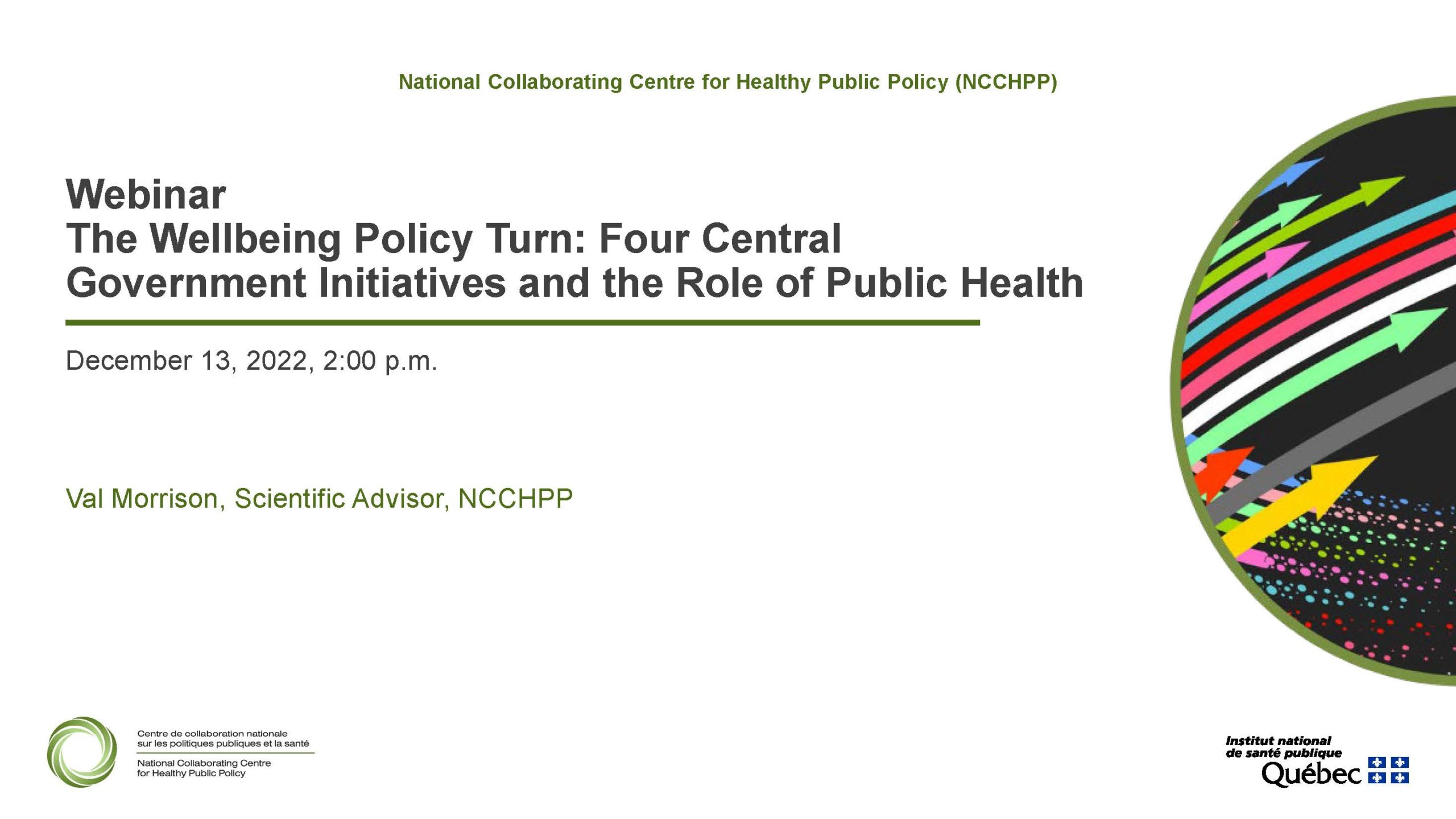The wellbeing of the population has long been a concern for central governments but over time, the measurement of how a country is doing has come to rely largely on economic benchmarks such as average revenue or Gross Domestic Product (GDP). In a rapidly changing world, faced with a global pandemic, economic uncertainly, and climate change, a turn towards a more robust and people-centred way of accounting for how populations are faring has been undertaken in several jurisdictions. This turn toward wellbeing policy-making practices leads us to wonder what role public health can and has played. This webinar introduced the recent trend toward wellbeing policy-making by looking at how this change has emerged and especially, reports on the wellbeing policies of four central governments. By looking at how the policies put forth in Scotland, New Zealand, Finland, and Wales are structured, we looked at how these policies connect with public health concerns and how the role that public health played in these cases. This webinar was held on December 13, 2022.
Target audience:
This webinar was particularly intended for public health practitioners, decision makers, and researchers who are relatively new to wellbeing policies. For those already familiar with wellbeing approaches, it provided insights into the development of these policies by four central governments and the potential contributions of public health to wellbeing policies.
After attending this webinar, participants were able to answer the following questions:
1. What is the wellbeing policy turn?
2. What are the main features of the wellbeing policies in New Zealand, Scotland, Wales, and Finland?
3. What role has public health played in the development of wellbeing policies so far?
Speaker
 Val Morrison
Val Morrison
Val has been a scientific advisor at the NCCHPP since 2008. She holds B.A. and M.A. degrees in sociology from Concordia University and pursued PhD course work and comprehensive examinations in social stratification, cultural theory, and research methodology in the sociology department at Carleton University. Her projects at the Centre have mostly been in the area of Health Inequalities: intersectionality; policy approaches to reducing health inequalities; and wicked problems. Recently, she has contributed to the project Analyzing Public Policies, by looking into public policy competencies for public health, and to the Population Mental Health and Wellness project by working on wellbeing budgets.
Webinar Recording
To read the chatbox conversations held during the webinar, click here.
PPT Presentation
33 slides



